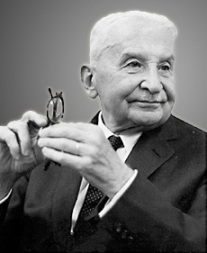In a piece of news that shocked the mainstream media, but which shocked no one familiar with the academic industry writ large, retired US Army general John Allen was forced to resign as president of the Brookings Institution after it was revealed the FBI was investigating him for lobbying on behalf of the Qatari monarchy. Of course, the real news, scarcely noted by the Washington Post, New York Times, or any other purported paper of record, is that Allen was only really in trouble because he hadn’t fulfilled the pro forma legal requirements for those lobbying the US government on behalf of a foreign agent or government. The Foreign Agents Registration Act (FARA), under which such activities are regulated, includes several exceptions that allow for such activities
Topics:
Joseph Solis-Mullen considers the following as important: 6b) Mises.org, Featured, newsletter
This could be interesting, too:
Nachrichten Ticker - www.finanzen.ch writes Die Performance der Kryptowährungen in KW 9: Das hat sich bei Bitcoin, Ether & Co. getan
Nachrichten Ticker - www.finanzen.ch writes Wer verbirgt sich hinter der Ethereum-Technologie?
Martin Hartmann writes Eine Analyse nach den Lehren von Milton Friedman
Marc Chandler writes March 2025 Monthly
 In a piece of news that shocked the mainstream media, but which shocked no one familiar with the academic industry writ large, retired US Army general John Allen was forced to resign as president of the Brookings Institution after it was revealed the FBI was investigating him for lobbying on behalf of the Qatari monarchy.
In a piece of news that shocked the mainstream media, but which shocked no one familiar with the academic industry writ large, retired US Army general John Allen was forced to resign as president of the Brookings Institution after it was revealed the FBI was investigating him for lobbying on behalf of the Qatari monarchy.
Of course, the real news, scarcely noted by the Washington Post, New York Times, or any other purported paper of record, is that Allen was only really in trouble because he hadn’t fulfilled the pro forma legal requirements for those lobbying the US government on behalf of a foreign agent or government.
The Foreign Agents Registration Act (FARA), under which such activities are regulated, includes several exceptions that allow for such activities without declaring a conflict of interest. Think tanks, a misnomer if ever there was one, operate under an “academic exception” that allows for engagement in “bona fide religious, scholastic, academic, or scientific pursuits or the fine arts.”
Anyone who has ever picked up one of the many deadly dull social science journals where actual, bona fide empirical academic work is done knows this constitutes perhaps a fraction of what think tanks almost daily churn out.
Rather think tank commentary, touted as objective analysis, is regularly featured or cited by publications and outlets as apparently diverse as the Wall Street Journal and NPR.
Of course, think tanks are hardly alone. As Ben Freeman, a specialist on foreign influence on US policy, has documented, such democratic bastions of liberal values as the UAE and Saudi Arabia donate hundreds of millions, even billions, to universities around the country.
Of course, from a libertarian perspective, who is to say who should be giving money to whom and for what? Further, FARA’s provisions are so nebulous that virtually anyone could be targeted for virtually any reason, an obvious opportunity for unaccountable federal officials to impinge on Americans’ civil liberties.
But the blatant hypocrisy of it all is what really stands out, as the same universities and think tanks regularly decry the apparently perfidious influence of countries like China, which they breathlessly warn uses our “open institutions” for its own gain. Should any of their number dare to go off message and report, for example, on the well-documented and wholly negative influence of countries like Israel on US foreign policy, they are tarred as anti-Semites, racists, or foreign agents themselves!
The truth is the powerful Israel and Saudi Arabia lobbies have been able to steer US policy in directions clearly at odds with the best interests of the American people for decades. Unsurprisingly, perhaps nowhere has the deleterious effect of their money been more felt than in US policy toward Iran, with the Saudis, Israelis, and Emiratis dumping literally billions of dollars into attacks on a country the United States should have normalized relations with decades ago.
The Uyghur lobby is another such interest group that enjoys an open door in Congress and the op-ed pages of prominent papers—this while its nakedly paramilitary arm advocates the violent overthrow of the Beijing government! And what are we, or foreign governments like China, to think when the parent organization of such extremists, the World Uyghur Congress, takes funding from the US government itself?
We aren’t supposed to think about it at all.
Just like we aren’t supposed to question any of the other nakedly self-serving policies. Who, for example, is surprised to learn there is a large and active Ukraine lobby in Washington? That has paid off handsomely, with our government now handing over $130 million daily to Kyiv with little to no oversight.
And of course, most maddeningly, any critically thinking American who even dares to question the US government’s obviously dangerous and counterproductive policies, bought and paid for by literal foreign agents, are themselves accused of being in the pay of Moscow, Beijing, or Tehran.
Never mind that all the evidence points in the opposite direction.
Again, the American people aren’t expected to think at all, only to stay in line and keep the money flowing.
This is the sad state of foreign policy in America, and it happens right out in the open.
Tags: Featured,newsletter








